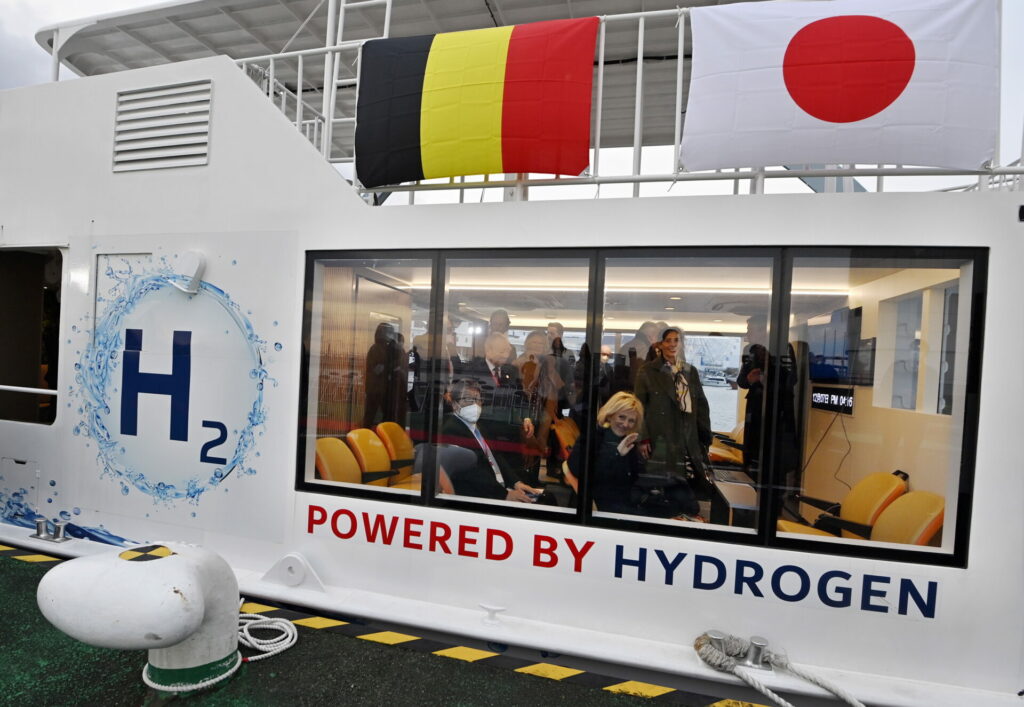A green hydrogen plant is set to open in the Belgian Port of Ghent, located in the East Flanders province, in early 2025 and will be powered with locally generated renewable energy.
The developers are promising to build a plant with a capacity of 2,5 megawatts, which could eventually be expanded to 5 megawatts.
In the context of the energy crisis following the war in Ukraine, European countries have started to look towards hydrogen as a solution to dependency on Russian gas imports. Belgium aims to create 2 to 6 terawatts of renewable hydrogen by 2030.
Terranova Hydrogen, the company behind the Ghent hydrogen plant, is a partnership between industrial gas company Nippon Gases, energy supplier Luminus and the joint company Terranova.
'Green' hydrogen
The Flemish government already subsidised the project with €4.33 million and welcomed the initiative as an important part of the climate transition. Still, green hydrogen has not yet proven to be decidedly environmentally friendly, partly due to the high energy consumption the process entails.
Hydrogen does not naturally occur in large quantities, so it has to be produced industrially; its production has to be powered by another source of energy. In practice, this means hydrogen can only be considered “green” when that source of energy is renewable and the process does not emit CO2. Currently, however, 96% of all hydrogen in Europe is produced through fossil fuels.
🇧🇪🇩🇪 With our H2-strategy, we are turning Belgium into a European hub for renewable hydrogen.
Essential to the future of our industry, to create independent energy supplies and to reach our climate goals. Happy to discuss closer Belgian-German cooperation in Berlin today. pic.twitter.com/bWbltA9gd0 — Alexander De Croo 🇧🇪🇪🇺 (@alexanderdecroo) May 10, 2022
Green hydrogen is obtained by splitting water molecules with electricity and is then burned to power vehicles. The hope is that it could help replace fossil fuels in industrial activities like mining, shipping and steel-making.
The process is extremely costly, and because it uses up so much energy, it also takes renewable energy away from other uses. Another key issue is just how difficult transportation is: liquified hydrogen has to be kept at -235°C and is extremely inflammable. Hydrogen fires are nearly invisible to the human eye and the gas itself has no smell, colour or taste, so any leaks are difficult to notice but extremely dangerous.
Even so, the EU has leaned into ambitions to expand hydrogen energy, planning to produce 10 million tonnes of renewable hydrogen by 2030, and allocating €5.2 billion worth of subsidies for the development of 41 hydrogen projects last year.
Related News
- 'A good day for Europe': EU to double renewable energy consumption by 2030
- Belgium bids to lead the way on green hydrogen
Belgium is eager to become a pioneer in the field and passed a hydrogen law regulating the transport of hydrogen through a network of pipes earlier this year, aiming to become a transit hub. By 2050, it hopes to create at least 100 terawatts from hydrogen.
In 2021, the environmental group Earthjustice expressed concern over the use of hydrogen as a large-scale replacement for fossil fuels, considering it to be a marketing spin by the fossil fuel industry. Some of the biggest investors in hydrogen plants are indeed major polluters like TotalEnergies and Shell.

